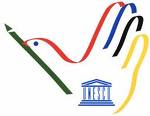
In honour of World Press Freedom Day on May 3, the Rhodes University School of Journalism in association with the SOS - Support Public Broadcasting Coalition and Media Monitoring Africa (MMA), hosted a World Press Freedom Day event which debated the politics of public broadcasting in South Africa.
Taking part in the debate were local representatives of the major political parties and representatives of key local organisations including New Unity Movement, Unemployed People’s Movement as well as Students for Social Justice.
The panellists evaluated the current state of public broadcasting, the gains for public broadcasting as well as the causes of the many recent problems at the SABC. They also offered possible solutions to these problems as well as what they think the long-term future of public broadcasting should be like.
Questions were raised after the SABC held a controversial electoral debate in Grahamstown recently. As we head up to the local government elections, what are political parties promising about public broadcasting? Will these promises make a difference to the residents of Grahamstown and the Eastern Cape?
Xola Mali, spokesperson for the Unemployed People’s Movement in Grahamstown, felt that the SABC’s election coverage has been problematic. He said that the broadcaster has not assisted in educating the public about what is happening on the ground. The UPM has held a number of demonstrations against corruption and the lack of service delivery but their plight has received minimal coverage.
Azapo and Cope representatives agreed that it is not only local organisations that get little coverage from the SABC. Smaller parties are also short-changed they felt. Nontobeko Yawa, Deputy Secretary General of Azapo agreed that smaller parties have not been given adequate coverage in present and past elections. Therefore as a party they feel that the SABC has played a significant role in Azapo’s oppression. “A true democratic state will allow freedom of expression and accessibility to all,” she said.
While all may agree that South Africa has made great strides in transforming its state broadcaster into a public broadcaster, it was noted that it still has a long way to go. There is still corruption and cadre deployment into high-ranking positions at the broadcaster. DA Councillor in Makana Michael Whisson said that until parliament commits to merit deployment, the SABC’s reputation will continue being tarnished.
Mcebisi Jonas, MEC for Economic Development and Environmental Affairs said that South Africans must realise that the SABC is a broadcaster in transition and that it is continuing to be shaped. What the panellists agreed on was that the SABC needs to be independent, report without fear or favour. It must take on the role of public watchdog while providing relevant information in local languages. “We must continue lobbying, struggling and challenging the public broadcaster on all of these issues,” said Jonas.
According to William Bird, Director of MMA, during the election period the coverage has been unbelievably fair in South Africa. He also said it true that smaller parties have received less coverage than larger, more prominent parties.
The conclusion was that the SABC needs to provide a lot more local content and for that to happen, more public funds need to go to the SABC. It also needs to let people know how to get hold of them to get their views on national news. There also need to be policy changes to allow for diverse and equal coverage to all political parties.
In 1991, African journalists and civil society drafted the Windhoek Declaration which promoted independent and pluralistic media. To commemorate this event, the United Nations General Assembly declared May 3 World Press Freedom Day, a day that calls for both a solemn celebration and meditation on global freedom of the press.
By Nompumezo Makinana
